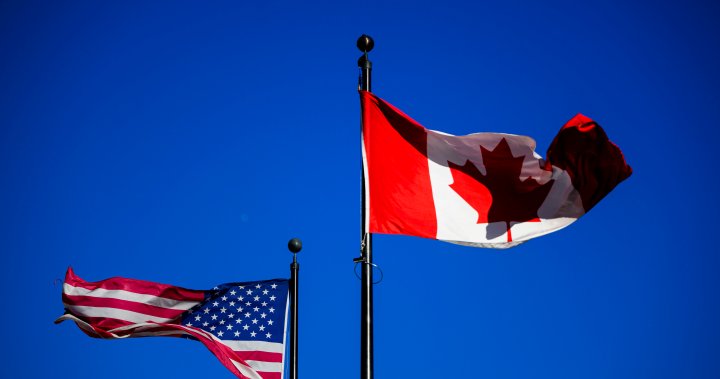Canada
Canada’s new fentanyl czar has been named

Canada Appoints New Fentanyl Czar Amid U.S. Pressure on Border Security
Introduction: A Strategic Move to Address Border Concerns
In a significant move to bolster efforts against the opioid crisis and address U.S. concerns, Canada has appointed Kevin Brosseau as its new fentanyl czar. This appointment comes amidst threats from U.S. President Donald Trump to impose tariffs on Canadian imports unless the country takes stronger measures to curb the flow of fentanyl and illegal migrants. Brosseau, a seasoned law enforcement veteran, will coordinate efforts across agencies to combat the fentanyl trade, signaling Canada’s commitment to resolving the issue.
Kevin Brosseau: A Seasoned Leader with a Rich Background
Kevin Brosseau brings over 20 years of experience with the Royal Canadian Mounted Police (RCMP) to his new role. His background includes roles as deputy commissioner and commanding officer in Manitoba, showcasing his deep understanding of law enforcement and policy. His academic credentials, including a law degree from the University of Alberta and a Master of Laws from Harvard, further highlight his expertise in corporate and Indigenous law. Brosseau’s appointment is a strategic choice, leveraging his extensive experience to tackle the fentanyl crisis effectively.
Context of Trump’s Tariff Threats and Border Dynamics
President Trump’s tariff threats underscore the pressing nature of border security, particularly regarding fentanyl. While only 0.2% of seized fentanyl in the U.S. originates from Canada, the move reflects broader concerns about cross-border drug trafficking. Canada’s response aims to mitigate these concerns, demonstrating cooperation and commitment to bilateral relations. This strategy also highlights the complexities of cross-border dynamics, where perceptions often influence policy decisions.
The Role of a ‘Czar’: Power and Policy in Government
The term "czar" signifies a high-level position aimed at cutting through bureaucratic red tape, often without formal powers. Experts like Mitchel Sollenberger note that while such roles can be ceremonial, they can also wield significant influence. Brosseau’s role may face challenges in effecting policy change, given the existing ministerial responsibilities. However, his experience positions him well to navigate these complexities, potentially driving meaningful action despite the limitations.
Implications for Canada’s Policies and International Relations
The appointment of a fentanyl czar marks a shift in Canada’s approach to the opioid crisis, reflecting both domestic urgency and international pressure. This move could enhance Canada’s posture in U.S. relations, showing proactive engagement on critical issues. However, it also raises questions about the practical impact of such a role on the ground. Success will depend on Brosseau’s ability to coordinate efforts and effect tangible change.
Conclusion: Prospects for the Future
As Canada navigates the complexities of the fentanyl crisis, Brosseau’s leadership is pivotal. The role of the fentanyl czar represents a blend of strategic communication and operational coordination. While challenges remain, the move signals a proactive stance toward addressing both domestic and international concerns. The effectiveness of this role will be a key indicator of Canada’s ability to evolve its strategies in response to emerging challenges.